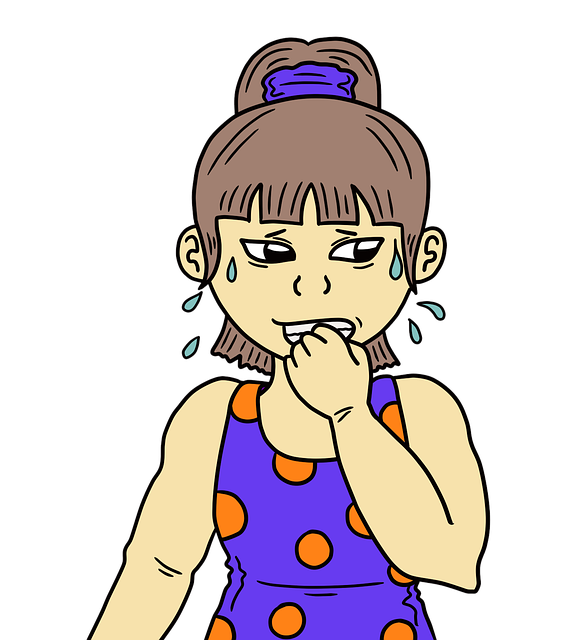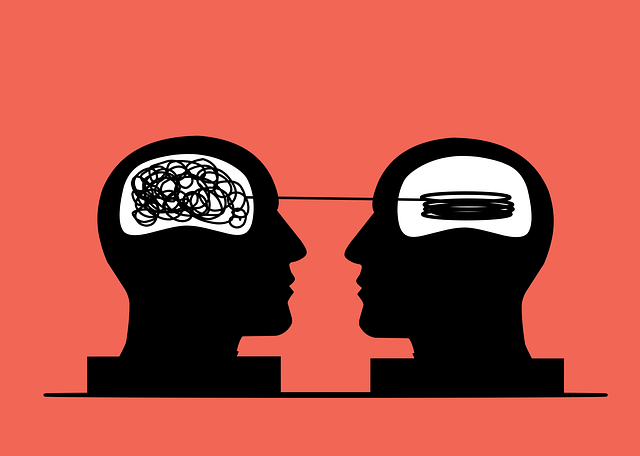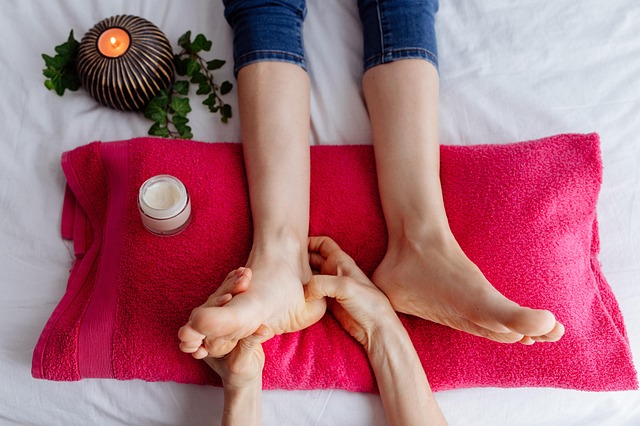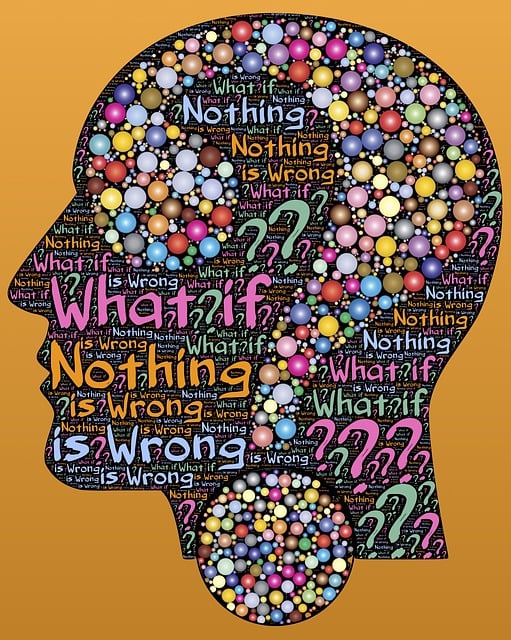Anxiety disorders, characterized by excessive fear and worry, include Generalized Anxiety Disorder (GAD), Panic Disorder, and Social Anxiety Disorder. Professional anxiety treatment is necessary when daily life is disrupted by persistent worry, panic attacks, or physical symptoms like elevated heart rate. Cognitive Behavioral Therapy (CBT) is an evidence-based approach, alongside Exposure Therapy and Mindfulness-Based Therapies. Medication, such as SSRIs and benzodiazepines, is used to manage symptoms under professional guidance. Lifestyle changes, including mindfulness meditation, exercise, and healthy habits, also play a crucial role in anxiety treatment. Support groups and community resources offer safe spaces for connection and learning, destigmatizing mental health concerns. Integrating self-care practices with professional treatment enables individuals to develop coping mechanisms and achieve long-term resilience. Success stories highlight the transformative power of tailored therapies in managing anxiety symptoms and enhancing overall well-being.
Anxiety disorders are a prevalent mental health concern, affecting millions globally. If you’re experiencing symptoms like excessive worry, fear, or panic, it’s crucial to understand that professional help is available through various effective treatments. This article explores comprehensive strategies for managing anxiety, including therapy types, medication options, lifestyle adjustments, and support networks. Discover how integrating self-care with professional treatment can lead to significant improvements in your well-being and overall quality of life.
Understanding Anxiety Disorders: Types and Symptoms

Anxiety disorders are a group of mental health conditions characterized by feelings of excessive fear, worry, or unease. They include various types, each with its own unique symptoms. Generalized Anxiety Disorder (GAD) is marked by persistent, uncontrollable worry about everyday matters, often accompanied by physical symptoms like restlessness, muscle tension, and fatigue. Panic Disorder involves recurrent and unexpected panic attacks, which are intense periods of fear coupled with physical symptoms such as rapid heartbeat and shortness of breath. Social Anxiety Disorder, or social phobia, causes significant distress in social situations due to fear of embarrassment, judgment, or negative evaluation from others. Understanding these distinct types is crucial for recognizing when professional help is needed regarding anxiety treatment.
Recognizing the symptoms is the first step towards seeking effective anxiety treatment. Symptoms may vary from person to person but often include a combination of emotional and physical indications. Emotional symptoms might be persistent feelings of worry, fear, or nervousness, along with a sense of impending doom. Physical manifestations can range from headaches, insomnia, and fatigue to dizziness, sweating, and rapid heartbeat. These symptoms can significantly impact daily functioning, making it hard for individuals to concentrate, socialize, or perform routine tasks. If these symptoms persist and interfere with one’s life, consulting a mental health professional is essential to explore appropriate anxiety treatment options.
When to Seek Professional Help for Anxiety

Anxiety is a normal human response to stress, but when it starts interfering with your daily life, it’s time to consider professional help. While there are many self-help strategies and over-the-counter remedies available, anxiety treatment from a qualified healthcare provider or therapist can offer more comprehensive and lasting solutions.
If you’ve been experiencing persistent feelings of worry, fear, or panic that don’t go away, along with physical symptoms like increased heart rate, trouble sleeping, or difficulty concentrating, it may be an indication that your anxiety has crossed into the clinical range. In such cases, seeking professional help for anxiety treatment can provide a supportive environment to understand and manage these feelings effectively.
Therapy Approaches for Overcoming Anxiety

Anxiety treatment often involves a combination of therapy approaches tailored to address the root causes and specific symptoms. Cognitive Behavioral Therapy (CBT) is one of the most effective evidence-based methods, helping individuals identify and change unhelpful thought patterns and behaviors contributing to anxiety. This approach empowers patients with coping strategies to manage their condition effectively.
Other therapeutic interventions include Exposure Therapy, which gradually exposes individuals to feared situations or objects, desensitizing them over time. Mindfulness-Based Therapies focus on the present moment, teaching relaxation techniques and mindfulness meditation to reduce anxiety symptoms. Support groups and group therapy sessions also play a vital role in providing a safe space for sharing experiences and learning from others facing similar challenges, fostering a sense of community and understanding.
Medication Options for Managing Anxiety

Medication plays a significant role in managing anxiety symptoms, offering relief for many individuals seeking effective anxiety treatment. Antidepressants, specifically selective serotonin reuptake inhibitors (SSRIs), are commonly prescribed as they help balance brain chemicals linked to mood and anxiety. By increasing the availability of serotonin, these medications can reduce anxious thoughts and feelings over time. Other options include benzodiazepines, which provide quicker relief but are generally used for short-term management due to potential side effects and risk of dependence.
Choosing the right medication depends on individual needs and preferences. It’s crucial to consult a healthcare professional who can evaluate symptoms, consider medical history, and discuss potential benefits and risks. They may start with one type of drug or combine different classes to tailor an optimal anxiety treatment plan, ensuring the best possible outcome for each patient.
Lifestyle Changes for Reducing Anxiety Symptoms

Anxiety symptoms can be effectively managed through a combination of professional help and lifestyle changes. Incorporating stress-reducing techniques like mindfulness meditation, deep breathing exercises, and regular physical activity can significantly alleviate anxiety. These practices promote relaxation, improve mood, and enhance overall well-being, serving as valuable tools in anxiety treatment.
Additionally, cultivating healthy habits such as maintaining a balanced diet, getting sufficient sleep, and limiting caffeine intake can go a long way in reducing anxiety levels. Avoiding substance abuse and excessive alcohol consumption is also crucial. By making these lifestyle adjustments, individuals can better navigate their anxiety symptoms and work towards a more peaceful and fulfilling life.
Support Groups and Community Resources

Support groups offer a unique opportunity for individuals dealing with anxiety symptoms to connect and share their experiences in a safe, non-judgmental environment. These groups provide a sense of community and belonging, allowing members to gain valuable insights from one another’s journeys. Facilitated by trained professionals, sessions often include discussions, education on coping strategies, and mindfulness techniques tailored to managing anxiety. By participating in support groups, individuals can build resilience, foster social connections, and enhance their overall well-being.
Community resources play a pivotal role in anxiety treatment by offering accessible and affordable options for those seeking help. Local mental health clinics, community centers, and non-profit organizations often provide a range of services, including individual therapy, group counseling sessions, and educational workshops. These resources are designed to cater to diverse needs, ensuring that everyone has access to quality care. Many communities also host anxiety awareness events and workshops, promoting open dialogue and destigmatizing mental health concerns.
Integrating Self-Care with Professional Treatment

Anxiety symptoms can be effectively managed through a combination of self-care practices and professional treatment. While self-care plays a crucial role in overall well-being, it’s important to note that anxiety disorders often require specialized care. Integrating self-care with professional treatment offers a holistic approach, enhancing the benefits of both. Techniques like regular exercise, mindfulness meditation, and maintaining a balanced diet can significantly reduce anxiety levels, serving as valuable tools alongside therapy sessions.
Professional treatment, such as cognitive-behavioral therapy (CBT) or other evidence-based practices, provides tailored strategies to manage anxiety. In conjunction with self-care routines, these treatments enable individuals to develop coping mechanisms, challenge negative thought patterns, and gradually reduce reliance on external support. This combined approach not only eases symptoms but also fosters long-term resilience in navigating anxiety-related challenges.
Success Stories: Real-Life Improvements Through Anxiety Treatment

Many individuals struggling with anxiety find solace and significant improvements through professional anxiety treatment. These success stories highlight the transformative power of seeking help, offering real-life examples of how therapy can make a difference. One person’s journey might involve learning coping mechanisms to manage panic attacks, while another may find new ways to face social situations that were once terrifying.
Anxiety treatment provides tools tailored to each individual’s needs, enabling them to regain control over their lives. Through therapy sessions, people develop strategies to challenge negative thought patterns, reduce anxiety symptoms, and enhance overall well-being. These success stories serve as inspiration, demonstrating the potential for profound personal growth and a better quality of life.
